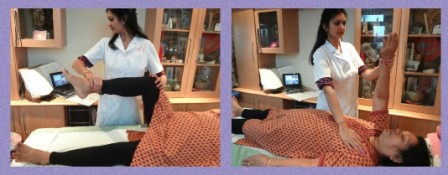Who has Acupuncture?
Acupuncture is considered suitable for all ages, including babies and children. It can also be used alongside conventional medicine. As with any therapy, the response to acupuncture can vary from one person to another.
How safe is it?
Acupuncture is a safe treatment for all. The needles used are single use, sterile and disposable. There may be a brief soreness or pulling sensation which means that your qi has connected with the needle.
A good treatment feels like being in “the zone” or a deep meditation asyour body moves back into balance.
Diagnosis and Treatment
Traditional acupuncture involves a complex system of examination, diagnosis and treatment. The initial examination takes around 11/2 - 2 hours and involves collecting information on medical history, lifestyle and assessing the condition of spirit, essence, energy, blood, fluids, organs and channels.
When vital energy cannot reach our organs and cells, toxins begin to accumulate in the body and our immune system is unable to function effectively, we then become sick and emotionally, physically and psychologically, out of balance.
There are also several specific diagnostic tests to ascertain the body’s energetic balance, including pulse taking and tongue reading which gives the practitioner detailed information about the state of the qi energy within the person, and helps with the detection of the energetic imbalances.
How does it work?
According to Chinese philosophy, our health is dependent on the body’s motivating energy called Qi, (“chi”), the vital life energy present in all living organisms. There are fourteen (14) main channels which can be described as rivers of energy (referred to as “qi” which means “vital energy”). The channels connect with each other and run through every part of the body. On the surface are the acupuncture points (over 365) which can be described as wells or vortexes which tap into these energy rivers. Each point has several functions. When the flow of Qi “chi” (Vital Energy) is interrupted, the natural balance of our life force is obstructed and stagnation in the body occurs.
The experience of having acupuncture is pleasant, relaxing and energizing. People who prefer not to have needles can benefit from techniques like acupressure, cupping, Tu ina massage, moxibustion, gua sha, ear seeds etc.
What happens when I go for treatment?
A consultation will be carried out, and the acupuncturist will ask you about current symptoms, what treatment you have received, your medical history, your diet, digestive system, sleeping patterns and emotional state. The acupuncturist is also likely to feel your pulses on both wrists, and may ask to look at your tongue.
How will you respond to treatment?
The response to treatment varies from person to person. Some sense a greater well-being first followed by improvement of their main complaint. Others see immediate improvement, feel revitalised mentally and physically, or relaxed and experience other more subtle changes. In addition, the length of time that the condition has been present can also be a factor in a person’s recovery rate.
How frequent will your treatment be?
Initially treatments are weekly, and as your health improves the gap between treatments increases, until you are only coming every few months to maintain your new found health. However, frequency and length of treatment depends on your individual condition. Some changes is usually felt after five treatments, although occasionally only one or two treatments are required. Some patients may need treatment over several months.
Children And Acupuncture?
There are alternative tools and probes that can be used for children who have a dislike for needles.
Should my doctor know?
Should I tell my doctor I am receiving this treatment?
Are there any medical conditions that prevent me from having this treatment ?
Professional standards
I am a member of the British Acupuncture Council (BAaC) who maintain standards of education, ethics and practice to ensure the healthy and safety of the public. BAcC members are bound by the code of Ethics covering confidentiality and are committed to providing the highest standards of care as per the Code of Practice. Members are also on a continuous development programme. The BAcC proved Professional indemnity and Public Liability insurance for its members.
Research fact sheets available on the British Acupuncture Council Website link:
Video froms British Acupuncture Council Website:
What can acupuncture do for you?
Traditional acupuncture can make a big difference to migraine sufferers
Did you know many athletes use acupuncture for pain relief and performance
Can I claim Private Health Insurance?
Many companies prove cover for acupuncturists who are BAcC members. Cover is varied, so check with your insurer for further details. See



